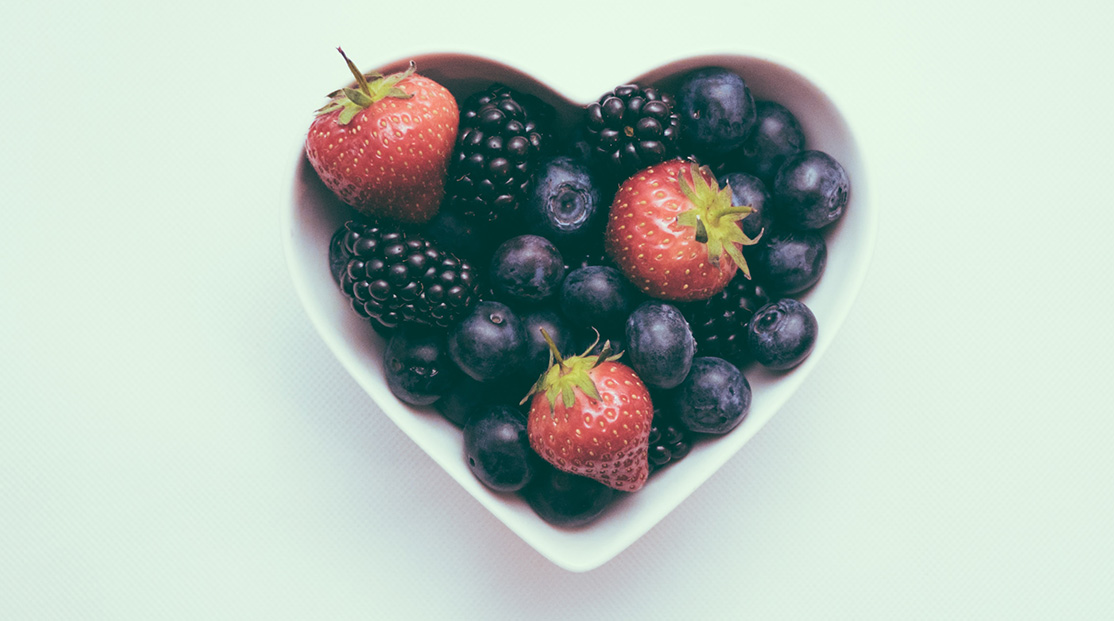Nutritionist Dr Aseel AlSaleh on how following a few simple steps can help you have a mindful and healthy Ramadan this year
With many of us observing fasting during Holy Month, thoughts inevitably turn to food. What we eat, when we eat it and how much we consume has an enormous impact on our general wellbeing during Ramadan, and, of course, our waistlines. But done mindfully, it is possible to have a healthy Ramadan and even lose weight, if you eat sensibly and follow a few simple guidelines.
“Think of it as intermittent fasting,” says Dr Aseel AlSaleh, a registered nutritionist from Saudi who’s based in Bahrain. “The multiple health benefits of eating all your meals within an 8-10 hour window have been medically proven, including: speeding up the metabolism; promoting fat burn; boosting brain functionality; controlling blood sugar levels; regulating blood pressure; improving muscle strength and assisting with weight loss. There’s even evidence it can help delay the signs of ageing.” As if we need further convincing!
The key to success is not to overeat during the non-fasting period of the day, which is easier said than done with so many delicious Iftar and Suhoor dishes to consume. “Think of it this way: if you eat just 500 extra calories a day during Ramadan, you’ll gain around half a kilo a week, that’s 2-2.5kg over the month,” says Dr AlSaleh. “This is roughly equivalent to consuming two samboosas and a carton of apple juice. It doesn’t take much to pile on the pounds, but if you’re aware of what you eat, it is possible to have a healthy Ramadan.
” Here’s how to do it:

Stay hydrated
It sounds obvious, but drinking plenty of water is vital for maintaining optimum health, particularly during Ramadan. “As a general rule of thumb, I always advise my patients to drink one glass of water every hour between Iftar and Suhoor,” says Dr AlSaleh. “It’s also important to limit your intake of sugary liquids, such as fruit juices and energy drinks, which are high in calories. If you want a change from water, keep a flask of hot water with chamomile or mint on hand, which can also aid digestion.
” Another easy way to increase your fluid intake is by consuming fruit and vegetables that contain high amounts of water. These include green leafy vegetables, such as cabbage, kale and spinach, as well as lettuce, zucchini and melon - which are also rich in immune-boosting vitamin C.

Break your fast mindfully
Dr AlSaleh recommends breaking fast with 3-5 dates and two glasses of water, followed by a handful of almonds, which are packed with healthy fats, fiber, protein, magnesium and vitamin E. “The body craves healthy fats after long hours of fasting, and a handful of almonds will help you feel full more quickly and satisfy the body’s cravings.”

Eat slowly
“It’s very common for people to eat too quickly during Ramadan”, says Dr AlSaleh. And who can blame them? After a long day fasting, it’s only natural we want to satisfy hunger pangs with copious amounts of Iftar food as quickly as possible, particularly when special dishes have been prepared. “If you want to lose weight and increase your metabolism, it’s important to control the amount of food you eat, and to do this you must eat slowly,” she continues. Why is this? It all comes down to the brain and the signals it receives that let you know you’re feeling full; a process that can take up to 30 minutes.
“Make sure you split your eating times. Break your fast with water and dates and then wait a while until Iftar. This will give your brain a chance to catch up with your belly.”

Know your calories
Good food is one of life’s simple pleasures, but it’s important to educate yourself about what you’re putting into your body, especially at Ramadan. “It’s very easy to overeat during this period, but a few simple substitutions can make an enormous difference to your calorie consumption over the month,” explains Dr AlSaleh. “Fried spring rolls have approximately 150-170 calories each, whereas if you bake it, it’s around 80-90 calories per serving. The same goes for soups - a simple vegetable soup has around 90 calories per serving, but if you have cream-based soup, that increases to around 200 calories per cup. So choose wisely and think about what’s in the food you eat.”

Don’t drink your calories
This is a very easy trap to fall into at Ramadan. Milkshakes, fruit juices, soft drinks and sweet coffees are loaded with sugar, and therefore high amounts of calories. The American Heart Association recommends women should consume no more than 6 teaspoons of sugar a day, men no more than 9, while children should consume less than 6 teaspoons a day.
“Be aware of your sugar consumption and make some simple switches, such as sparkling water with lemon, or homemade pink lemonade instead of soft drinks,” suggests Dr Alsaleh. Another culprit to watch out for is qamar al-deen. “One glass contains around 260-300 calories, so I recommend diluting it - three parts water, one part juice. It will still taste delicious, but the difference in calories is dramatic.”

Consider your gut health
Changing our eating habits means the delicate microbiota in the gut takes a battering during Ramadan. This can result in abdominal discomfort, such as constipation or diarrhea, mood swings and a host of other IBS symptoms that may rear their ugly head at this time. “I recommend my patients take probiotics to boost the good bacteria in the gut,” says Dr AlSaleh. “You can do this by eating Greek-style yogurt or kefir, which are naturally high in probiotics, or by taking a daily supplement.”

Take supplements at the right time
Speaking of supplements, it’s important to consider when and how you take them to ensure the body absorbs the nutrients we ingest effectively. Many probiotics, for example, are best taken on an empty stomach, although be sure to check the label, while vitamin D and multivitamin supplements should be taken straight after the main meal, whenever this may be. If you’re taking iron supplements, it’s essential to avoid caffeinated drinks, and even chocolate, for two hours afterwards.

Don’t forget to exercise
“It’s easy to overlook keeping fit during Ramadan,” says Dr AlSaleh, “but exercise plays a vital role in boosting our wellbeing. If you’re in good health, try going for a walk or cycle before Iftar, so long as it doesn’t exhaust you, otherwise, have Iftar then wait for two hours before you exercise. Swimming, walking, cycling and playing football are all good ways to increase your metabolism, but 40 minutes of walking a day is enough to keep you moving.”

Don’t skip Suhoor
It’s tempting to skip this meal, particularly if you’re trying to limit your calorie intake to maintain or lose weight during Ramadan. “This is a big mistake,” says Dr AlSaleh. “I always advise my patients to have a meal that’s very high in fiber for Suhoor, something that will keep you full during the day ahead and regulate your blood sugar.
” Good options include oatmeal with Greek yoghurt, scrambled eggs on wholemeal toast, tuna or chicken breast with quinoa, hummus with tortilla wrap or a simple baked potato with the skin on.
If you’re diabetic or pre-diabetic, be sure to push Suhoor as close to sunrise as possible.

Get enough sleep
Our bodies are out of synch during Ramadan, but don’t underestimate the importance of getting enough sleep. “It’s absolutely vital,” says Dr AlSaleh, “lack of sleep is linked with obesity, and it’s common for children to experience poor brain function and concentration if they’re allowed to stay up until 2 or 3am every night. Stay rested and look after yourself and there’s no reason why you can’t have a very healthy Ramadan.”

Recipes
Refreshing pink lemonade
- 2 cups warm water
- 2 tablespoons of honey
- 11/2 cups lemon juice
-1/2 cup fresh raspberry or strawberry puree
Mix together and serve over ice
Pomegranate and ginger drink
- 1 cup fresh pomegranate juice (from 2-3 pomegranates)
- 2 tablespoons sparkling water
- 2 tablespoons lime or lemon juice
- 2 tablespoons honey
- 5cm piece fresh ginger, thinly sliced
Mix together and garnish with pomegranate seeds
For more information or to book an appointment with Dr Aseel AlSaleh, contact MCC at bookings@mcc.social.
More about Dr Aseel AlSaleh PhD, BSc (hons), RNutr
Dr Aseel AlSaleh is a registered nutritionist specializing in obesity, diabetes, irritable bowel syndrome, food allergies and intolerances, kidney and liver problems and genetics. She teaches medical students at the Arabian Gulf University and has her clinic at King Abdullah Medical City.
Prior to moving to Bahrain, she worked at Imperial College London where she led cutting edge research in the prevention of diabetes in the UK. After being awarded her PhD by King’s College London, Dr AlSaleh resumed her research and teaching activities at the same university before joining Imperial College. She has also completed a research degree at Harvard Medical School and is widely published in top scientific journals.
Dr AlSaleh continues her research and practice offering nutritional consultations both at her clinic for Bahrain based patients and over the phone/Zoom for overseas clients.
DON’T MISS
– Ramadan fashion 2022: Top picks for Holy Month
– Ramadan capsule collections 2021
– How to motivate your children to be charitable at Ramadan
– Tips for keeping fit during Ramadan





